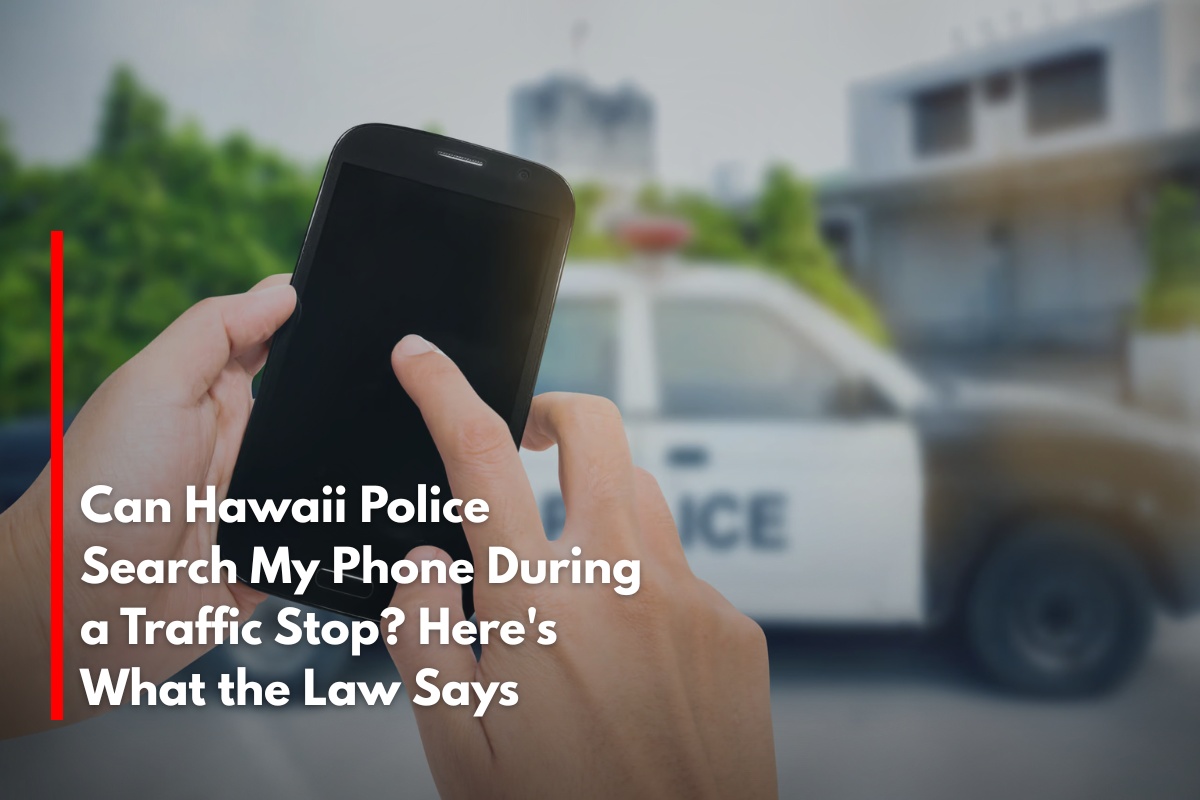With the increasing amount of personal information stored on mobile phones, many people wonder about their privacy rights during interactions with law enforcement—particularly during traffic stops. In Hawaii, knowing whether police can search your phone without your consent or a warrant is crucial. Here’s what the law says.
The Fourth Amendment and Privacy Rights in Hawaii
The Fourth Amendment protects individuals from unreasonable searches and seizures, including those involving electronic devices like smartphones. Hawaii’s Constitution also upholds strong privacy protections, reinforcing the need for law enforcement to follow legal procedures when conducting searches.
In most cases, police officers must obtain a warrant before searching the contents of your phone. This constitutional safeguard means that during a traffic stop, simply having your phone on hand does not give the police the right to delve into your data without proper legal authority.
When Can Police Search Your Phone Without a Warrant?
There are limited exceptions where police might search a phone without a warrant in Hawaii:
Consent: If you voluntarily give the police permission to search your phone, they can do so without obtaining a warrant. However, you are under no obligation to consent, and it is often advised to politely refuse without giving an explicit denial that might escalate the situation.
Exigent Circumstances: In cases of emergency—such as preventing an imminent threat or stopping the destruction of evidence—law enforcement can conduct a warrantless search. For example, if they reasonably believe the phone contains evidence that could be remotely deleted, they may act quickly.
However, these exceptions are narrowly construed, and the police typically need probable cause and a warrant to access detailed phone data.
What Happens If Police Seize Your Phone?
Police officers may seize your phone during a traffic stop if they have reasonable suspicion or probable cause that it contains evidence related to a crime. Even then, accessing the phone’s contents usually requires a warrant. Law enforcement may secure the device to prevent tampering or loss of evidence but cannot just browse through apps, messages, or photos without judicial approval.
Your Rights at a Hawaii Traffic Stop
You have the right to remain silent and do not need to answer questions beyond identifying information.
You do not have to consent to a search of your vehicle or personal belongings, including your phone.
If the police ask permission to search your phone, you can decline without providing a reason.
If your phone is seized, ask for a lawyer immediately before consenting to any searches.
Never provide your passcodes; asserting your Fifth Amendment right against self-incrimination is within your legal rights.
Hawaii Police Policy on Warrantless Searches
The Honolulu Police Department and other law enforcement bodies follow policies emphasizing the protection of constitutional rights. Officers are generally required to seek warrants for searches unless clear exceptions apply. They are also trained to inform individuals of their rights during these interactions.
Final Thoughts
In Hawaii, police cannot legally search your phone during a traffic stop without a warrant or your explicit consent, except in rare emergency situations. Being aware of your rights and respectfully asserting them can help protect your privacy. If you believe your rights have been violated during a stop, seek legal advice promptly.
Knowing your digital privacy rights is essential in today’s tech-driven world. Hawaii’s laws and constitutional protections prioritize your privacy, reinforcing that your phone’s contents are not open for warrantless searches during routine traffic stops.
Sources
[1] https://808lawhelp.com/blog/your-rights-when-stopped-by-police-in-hawaii/
[2] https://www.honolulupd.org/policy/policy-warrantless-searches-and-seizures/
[3] https://law.justia.com/codes/hawaii/title-17/chapter-291c/section-291c-137/
[4] https://www.theverge.com/2024/9/24/24252235/police-unlock-phone-password-face-id-apple-wallet-id
[5] https://www.duilawyerhawaii.net/what-are-your-rights-when-pulled-over-in-a-hawaii-traffic-stop











